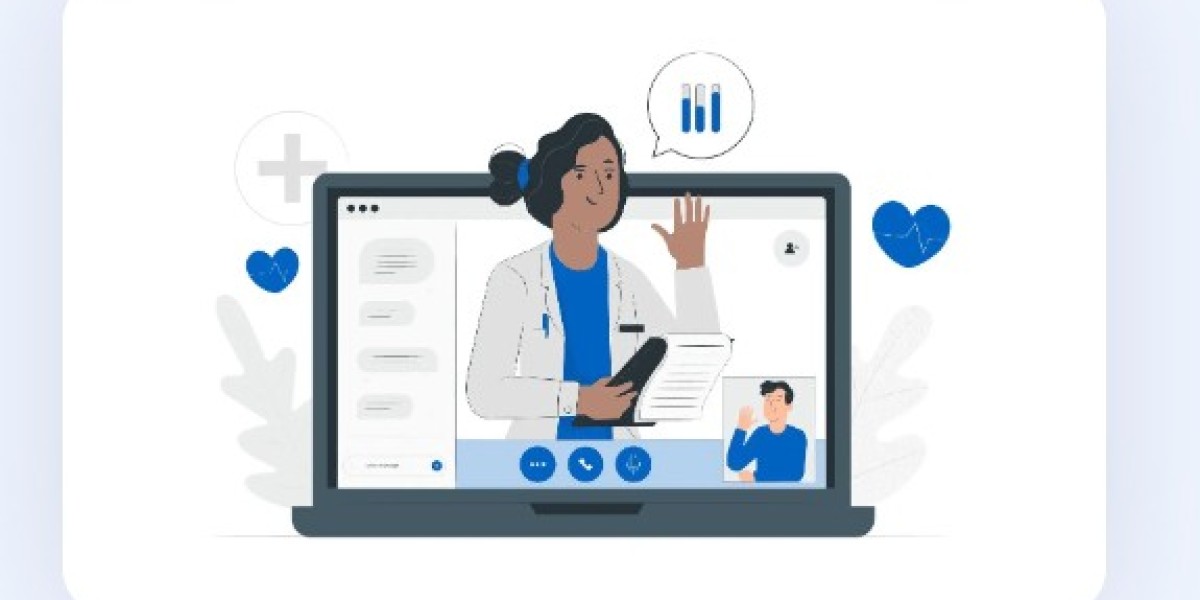Introduction:
In an era driven by technology, the healthcare industry is witnessing significant transformations. One of the remarkable shifts is the integration of Information Technology (IT) outsourcing into healthcare operations. This article explores the benefits, challenges, and implementation of IT outsourcing for healthcare industry, shedding light on how this strategic partnership is revolutionizing patient care and administrative processes.
It Outsourcing for Healthcare Industry: Driving Innovation and Efficiency
As healthcare institutions embrace digital transformation, IT outsourcing emerges as a strategic choice for optimizing operational efficiency. With the integration of electronic health records (EHRs), telemedicine, and data analytics, the healthcare industry generates vast amounts of sensitive data. To manage and secure this data effectively, healthcare organizations turn to IT outsourcing partners that specialize in data management, security protocols, and system maintenance.
Outsourcing allows healthcare providers to focus on their core competencies, such as patient care, diagnosis, and treatment, while leaving the complexities of IT management to experts. This approach not only streamlines processes but also enhances patient care by enabling healthcare professionals to dedicate more time to their primary responsibilities.
Leveraging IT Outsourcing for Enhanced Patient Care
Advancing Telemedicine Services: IT outsourcing facilitates the implementation and management of telemedicine services, enabling patients to receive remote medical consultations, diagnostics, and follow-ups. This level of accessibility improves healthcare accessibility, particularly in rural or underserved areas.
Personalized Treatment Plans: Through data analytics and AI-driven insights, IT outsourcing helps healthcare providers create personalized treatment plans for patients. These plans are tailored based on historical data, genetics, and real-time health monitoring, leading to more effective and precise treatments.
Efficient Appointment Management: With outsourced IT solutions, healthcare institutions can implement robust appointment scheduling systems. This reduces patient wait times, optimizes resource allocation, and enhances overall patient satisfaction.
Challenges and Solutions in IT Outsourcing for Healthcare
Data Security Concerns: Protecting patient data is paramount in the healthcare industry. Outsourcing partners employ advanced security measures, including encryption, regular security audits, and compliance with industry standards such as HIPAA, to ensure data integrity and confidentiality.
Integration Complexity: Migrating from legacy systems to modern IT solutions can be complex. However, outsourcing partners possess the expertise to seamlessly integrate new systems with existing infrastructure, minimizing disruptions.
Vendor Selection: Choosing the right outsourcing partner is crucial. Healthcare institutions should prioritize vendors with a proven track record in the industry, strong references, and a clear understanding of compliance requirements.
Implementing IT Outsourcing: A Step-by-Step Guide
Assessment and Planning: Evaluate existing IT infrastructure and identify areas that require outsourcing. Develop a comprehensive plan outlining objectives, timelines, and expected outcomes.
Vendor Selection: Research potential outsourcing partners, considering their expertise, experience, and compatibility with your organization's culture and goals.
Contract Negotiation: Establish a detailed contract that outlines responsibilities, expectations, pricing, and service-level agreements.
Implementation: Collaborate with the outsourcing partner to implement solutions, ensuring seamless integration with existing systems.
Monitoring and Support: Regularly monitor the outsourced services, addressing any issues promptly. Maintain open communication with the outsourcing partner to ensure alignment.
Frequently Asked Questions (FAQs):
Q: What are the primary benefits of IT outsourcing for the healthcare industry? A: IT outsourcing enhances operational efficiency, data security, and patient care by leveraging specialized expertise.
Q: How does IT outsourcing improve data security in healthcare? A: Outsourcing partners implement stringent security measures, including encryption and compliance with regulations like HIPAA, to safeguard patient data.
Q: Can IT outsourcing help smaller healthcare practices? A: Absolutely! IT outsourcing allows smaller practices to access advanced technologies, reduce costs, and focus on patient care.
Q: What challenges should healthcare institutions anticipate when outsourcing IT services? A: Challenges include data security concerns, integration complexities, and the need to select a suitable outsourcing partner.
Q: How can healthcare organizations ensure a successful IT outsourcing partnership? A: Thorough vendor selection, detailed contracts, clear communication, and continuous monitoring are key to success.
Q: What role does IT outsourcing play in healthcare's digital transformation? A: IT outsourcing accelerates digital transformation by providing expertise in implementing advanced technologies and optimizing processes.
Conclusion:
IT outsourcing is reshaping the landscape of the healthcare industry, fostering efficiency, innovation, and improved patient care. By partnering with specialized IT vendors, healthcare institutions can overcome challenges, enhance data security, and provide more personalized treatments. The seamless integration of technology and healthcare expertise demonstrates the industry's commitment to embracing advancements for the betterment of patient outcomes.



